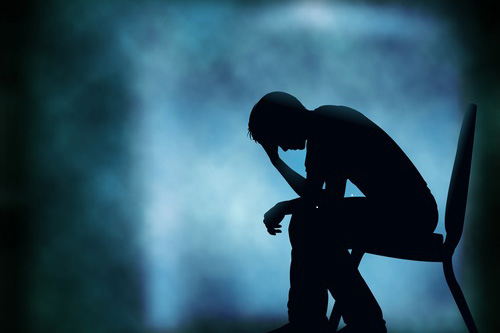
When grief is complicated
Grief is the emotional reaction we have when we suffer a loss of someone or something that is meaningful to us. While we mostly use the term to refer to the loss of a beloved person, we can also experience grief over loss of health, loss of a job, loss a relationship or even the loss of place. People in fires or natural disasters may be grateful that they survived a close call, yet may grieve intensely for the home and possessions they lost.
While many of us will be fortunate enough to escape catastrophes, none of us will escape the experience of grief. It’s a fact of life.
Often, we can navigate our feelings of loss and sadness on our own, relying on our normal support systems such as family, friends, clergy or community. It is intensely painful, but by continuing to engage with life, we slowly heal.
But sometimes, it doesn’t work that way. Some people can get “stuck” in grief.
It’s difficult to know what “normal” grieving is because no one processes grief quite the same way and no one is on the same schedule. There is no right or wrong way to grieve. There are so many factors that might influence the process: our closeness to the person we lost and the day-to-day impact on our lives; the circumstances of the death, such as if it was sudden and traumatic or a prolonged illness; if the deceased was a child or an older person who lived a long, full life.

When grief continues to disrupt activities of daily life long after the loss has occurred, a person may be experiencing something commonly referred to as complicated or unresolved grief. This is a form of depression and the person who experiences this long-lasting grief should seek professional assistance.
Potential symptoms of complicated grief include: Nightmares, flashbacks, sleep disruption • Feelings of hopelessness, despair, meaninglessness • Intense feelings of guilt, blame or worthlessness • Physical distress or illness • Extreme anger • Ongoing disinterest in life • Inability to perform normal daily activities • Isolation and breaking social ties • Thoughts of suicide • Escape behaviors such as increased use of alcohol or drugs.
If you feel you are “stuck” in your grief or if you observe a friend or relative who experiences significant life disruption due to prolonged sadness, professional assistance is the best option.
Remember, if you or a family member faces grief or loss, you can call your EAP 24-7 for counselling and support. Coping with grief is one of the most common reasons people turn to us.
1.800.252.4555 or 1.800.225.2527
View more newsletters at www.theEAP.com
